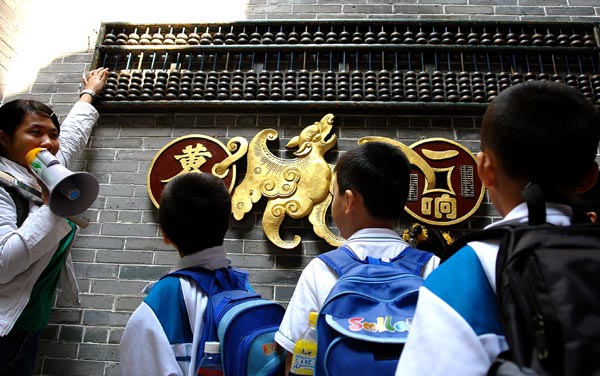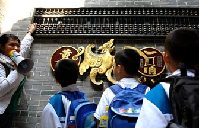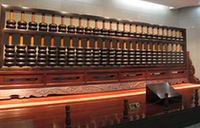Changing the equation
By Zhang Kun ( China Daily ) Updated: 2014-01-05 08:21:00
 |
|
A group of students were shown a mega-abacus in Zhongshan city, Guangdong province. [Photo/Xinhua] |
|
 |
|
Culture that counts |
 |
 |
 |
"Few people are interested in the obsolete abacus," Ge says.
"I love them. But it's just too difficult for me to hold on to my collection."
Ge's tiny shop not only sells but also repairs old abacuses. He also hawks vintage gramophones and vinyl records.
Rent costs 500 yuan a month.
"I can afford this on my police retirement pension," he says.
Across from his shop is Yang Jinmei's antique ceramic shop, where abacuses are becoming more abundant among the displayed cups, teapots and Buddha statues. Ge's apprentice, Liu, is her son.
"I want my son to learn from Ge and carry on abacus collecting," she says.
"We want to do all we can to keep the ancient Chinese calculator alive in modern times."
The 70-year-old antique ceramics dealer believes the abacus' value will rise.
"When I was young, my family was so poor that we couldn't afford an abacus," Yang says.
"I had to borrow one from our neighbor's son."
Yang once bought a small redwood abacus for her little granddaughter from an open stall for 600 yuan.
She told the girl: "I want you to keep it as an heirloom from grandma."
Wu Ni contributed to this story.
Related stories:
From crunching numbers to conceiving new words
Time line: Abacus calculation in China
|
|
|
|
|
|
|
|





















 Raymond Zhou:
Raymond Zhou: Pauline D Loh:
Pauline D Loh: Hot Pot
Hot Pot Eco China
Eco China China Dream
China Dream China Face
China Face





